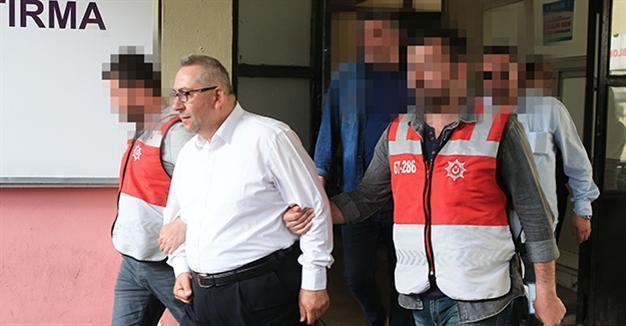Four arrested in Turkey’s Gülen financial links probe, businessmen face jail time
ISTANBUL

AA photo
Four people were arrested in a probe into the financial links of U.S.-based Islamic scholar Fethullah Gülen sympathizers on April 20 before dozens of other detainees, including board member of a leading construction company, were sent to court with an arrest demand by prosecutors on April 21.
Those arrested were among the first batch of 44 people sent to court with an arrest demand on April 20, reportedly the employees of Bank Asya, the Islamic lender founded by the Gülen group and seized by the state last year.
The court released 18 suspects, as 22 others were released pending trial.
A total of 107 people were detained April 19 in nine provinces across Turkey in a police operation centered in Istanbul. A detention order was given for 140 people, including Bank Asya employees and businessmen.
Four women with small children and a cancer patient who were among those detained were released immediately.
A total of 44 out of 46 suspects interrogated on April 21, who included Dumankaya Construction Chairman Uğur Dumankaya, Managing Member Halit Dumankaya and board members Semih Serhat Dumankaya and Ayla Dumankaya Pirinççi, were sent to court after testimonies to five prosecutors and a two-day detention.
Charges against the suspects include “being a member of the Fetullahist Terror Organization (FETÖ)/ Parallel State Structure (PDY),” “providing finance for the terror group,” “propagating for the terror group” and “money laundering.”
Suspects in the first group detained were also charged with collecting money for Bank Asya, founded by followers of Gülen and seized by the government last year, and forcing people to subscribe to newspapers supportive of Gülen.
Turkish President Recep Tayyip Erdoğan and the ruling Justice and Development Party (AKP) accuse Gülen and its followers of setting up a “parallel state” and conspiring to unseat the government with a network of supporters in the judiciary, police and media.
A court in Ankara, meanwhile, appointed trustees to run a school network managed by Gülenists in the capital on April 21.
